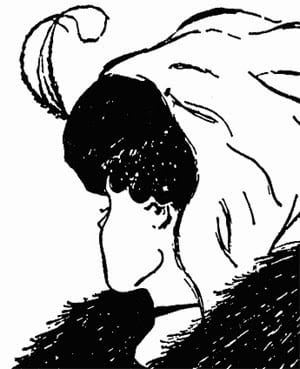I know from fear.
I grew up an anxious, perfectionistic little kid, afraid of new things and new people and situations I couldn’t control.
I spent the first years of my parenting life terrified that I was doing everything wrong, that my children would get terribly sick or my husband would leave us.
I know from fear. And my life began to turn around the day I decided I would no longer be ruled by it. It wasn’t a sudden thing, just a gradual dawning that I had a choice to make, and once I recognized that I had been choosing scarcity and fear for most of my life (all the while wondering why happiness and contentment weren’t showing up at the door), it was pretty profound.
I have been watching with amusement the growing concern over the Zika virus “outbreak” and, until yesterday, was mildly confused. Yesterday, NPR broke a story about the World Health Organization saying that this virus had “explosive, pandemic potential” and it was all over my Facebook page. Really? This virus that most people never even know they have because it causes mild cold-like symptoms is all of a sudden something we are cautioned to freak out about? Yes, I understand that it has major implications for women who are pregnant, although as of yet, there is no causative connection that has been established. And I get that, in many countries where there are no options to control whether or not you get pregnant, this is a conundrum. Wow. Nothing like stirring up fear of something that is likely to not really cause any problems for the vast majority of us.
This morning, NPR had one of their correspondents in Iowa interview Republican voters regarding last night’s GOP debate and I was struck again by how the front-runners have stoked the fears of people in order to gain votes. Over and over again, I heard people talk about terrorism, ISIS, and the fear that, if a Democrat were elected to the presidency, their guns would be taken away and they would be left altogether defenseless against “meth addicts in my front yard with guns.” Huh? In Iowa? Is there some sort of terrorist cell network in Iowa that I don’t know about? Are there lots of armed, methamphetamine-addicted folks running around at night burglarizing towns in Iowa?
A little later, on the Tavis Smiley show, there was a political analyst who was talking about the odd phenomenon that is Donald Trump and when Tavis asked him about the “best way to fight Trump,” his answer was, “I’m curious why you’re focusing on fighting Trump and not supporting Hillary.”
Yes. Not that I’m a Hillary supporter. To be honest, I am pretty firmly in Sanders camp, but that’s not something that we need to discuss here.
I was reminded of the knowledge that what we fight against grows in power, if only because we are giving it our energy. The key is to direct our energy toward the thing we desire, not against the thing we are afraid of. That is not to say that there aren’t things to fear in life, but if we take a step back and really think about it, what are the odds that any one of us in this country is likely to be touched by terrorism, contract the Zika virus, or be shot by a meth-addicted robber? We are more likely to suffer slowly from income inequality, domestic violence, and pollution. And in the meantime, when we let our daily activities and choices be dictated by fear of things we won’t likely ever encounter, we are wasting our energy. When we make the choice to rail against the things we are afraid of (most of which will never come to pass, and even if they did, we have almost no control over them, anyway) instead of creating space for the things we do want to see in our lives, everyone is hurt.
The main difference I see between focusing on hope and focusing on fear is that one of them is actually more frightening than the other one. When we focus on what we’re afraid of and put our eggs in the Trump/Cruz/Rubio basket, we are actually less afraid because we think we’re following people who can control or prevent what we’re scared of. When we focus on hope, we are putting ourselves out there in a way that is vulnerable, with the knowledge that it will take some effort on our part to make it happen, and that responsibility is often much more frightening than sitting back and letting someone else do it. But ultimately, that is what this country was built on – groups of people who were committed to working for a better collective future for us all, and that is where I will continue to put my energy. Here’s hoping there are lots more people out there that feel the same way. Fear is a strong motivator, but it doesn’t ultimately get a damn thing done that is good for all of us.





